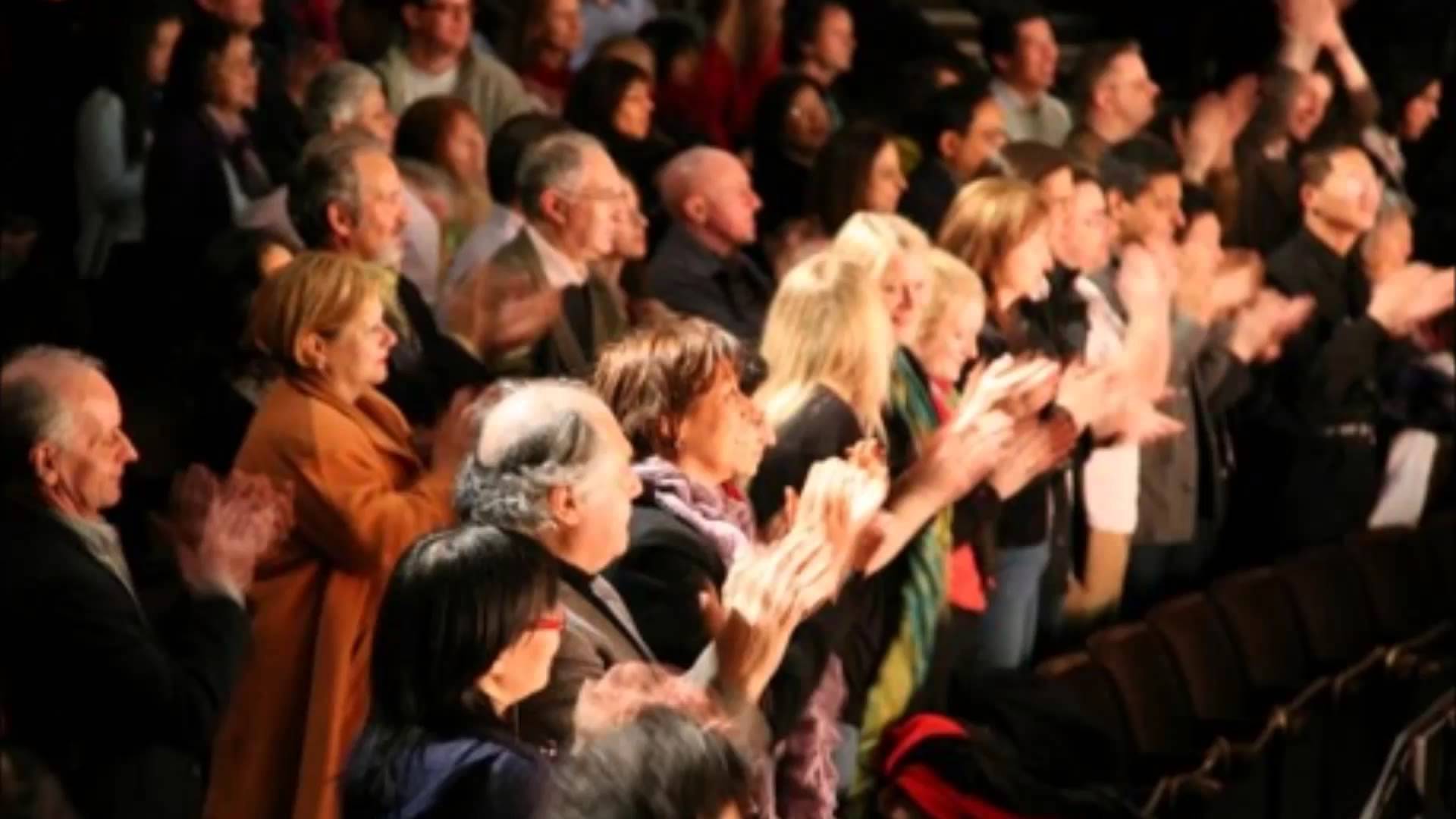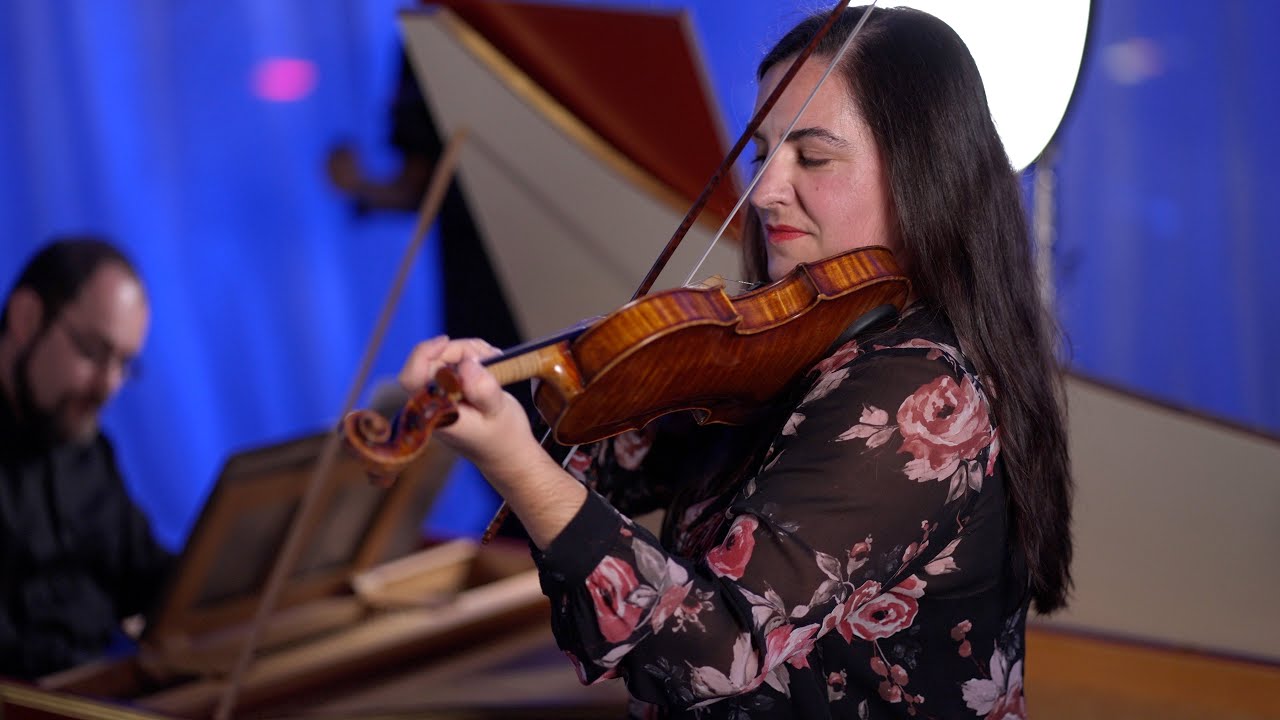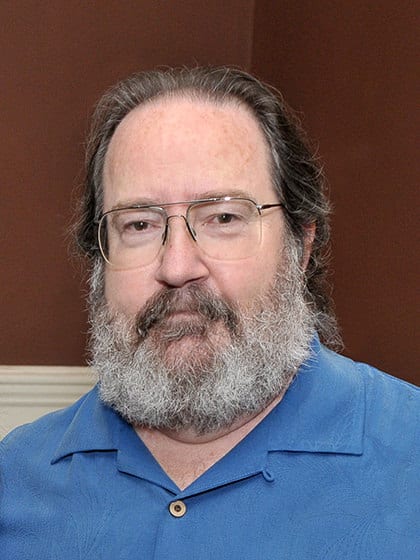The scientific causes of premature audience elation
Comment Of The DayReader’s Comment of the Day is by Dr Sasha Valeri Millwood, responding to an incident at a concert in Birmingham:
There is nothing “arcane” about the simple objective of staying as silent as is humanly possible during the performance, which includes (for the avoidance of doubt) the silence at the end. Many of the people who break the spell, far from being ignorant first-timers, are relatively informed yet insensitive boors who want to show off that they (think they) know when the music is finished. Is it too much to ask to wait for performers to ‘relax’ visibly and turn to acknowledge the audience *before* beginning to applaud? And, where the mood of a piece calls for it, observing a lengthy silence at the end (e.g.: Tchaikovsky 6; Schubert Fantasia in F minor; RVW Tallis Fantasia)?
What *is* potentially “arcane” is realising when it may be appropriate to applaud or laugh in the middle of the performance (e.g.: after an aria in certain styles of opera). In that case, the solution is very simple: if in doubt, hold your peace.
Even if this were purely a ‘first-time concertgoer’ issue, I would still argue strongly that the onus is upon the concertgoer to make himself/herself aware of the etiquette and observe it, in the same way that one would inform oneself of local laws and customs if visiting for the first time another country or a place of worship belonging to another religion (incidentally, silence is an important feature of many cultural and religious traditions). To that end, it is important that concert venues make expectations clear (e.g.: mobile telephones must be completely *off* at all times during the performance, including during any stage resets between pieces, and private photography is prohibited, expect perhaps during the applause at the end of a programme, and then only if the venue has said explicitly that such photography would be permitted).
Alas, premature applause is not the only blight afflicting concert etiquette since the return to live performances in May. I have been to many concerts at the Wigmore Hall in the last month, and have been horrified at the number of people who think it appropriate to whisper during the performance (and, for the avoidance of doubt, “performance” includes times when the performer is performing from an offstage position, as Lawrence Power did for the entirety of the first piece in a recital he gave recently… several people kept whispering even when it was abundantly clear that the performance had started). It seems that some people believe (erroneously) that the one-metre distancing currently in force makes their whispers inaudible; in reality, although one might not be able to hear *what* is being whispered, one’s enjoyment of the concert can be disrupted by the sound of whispering, even if it is a dozen rows away.






I’ll bet the writer is a bundle of laughs at a party !
Lol!
Actually, the writer expressed what I’ve been thinking for decades.
Me too, Will. And I have never seen it better expressed.
We all heard of what happened during the last measures of Mahler’s 9th when a ringtone went off. Probably the worst moment in the owner’s life! His phone was a present given to him a day or so before, and he forgot to turn off the alarm. He also wrote a letter of apology to the conductor, immediately afterwards.
During his lifetime, Mahler once lived next to a zoo. He had mentioned to a friend that he preferred a lion’s roar to the impolite applauding of concert goers in between the mvts. of a work. Concert etiquette was at it’s beginnings in those first years of the 20th century.
It seems that things have not changed, and that cell phones only worsen the situation.
Well, it’s an opinion, probably shared by many who read this blog. But I don’t see anything scientific in the methodology.
It’s funny how you are totally right to point out the misleading title and yet you are getting downvoted probably by right wings who dislike the word “science” …
And where’s the equity, diversity and inclusion??!!!
‘I love those concert performances of Wagner. One can talk to one’s neighbour without being overheard.’ (Oscar Wilde)
A neighbour talked to Oscar Wilde!!!!!????
I remember minutes of absolute silence after a War Requiem in the Bury St. Edmunds cathedral in the mid 80s, unforgettable!
I tend to think it is up to the performer to communicate whether, for example, in a song recital whether they want applause only at the end, after a group or after each one. If the singer relaxes their shoulders at the end of an item to me that signals a break where applause might be appropriate
There was a Lieder recital in the eighties in Munich by a very serious singer, I don’t want to name names but it was [redacted], who did the Winterreise and asked the audience to only applaud after he had left the building. After the concert, the audience sat waiting for half an hour and then hesitatingly began to applaud, to everybody’s relief, and quietly left the premises. The next day’s review said it was a most moving evening where the listeners could spiritually digest the music’s after-effects undisturbed.
There are also cultural differences. In the United States, immediate clapping is normal behavior, right after the last sound has barely evaporated. At the opera clapping begins as soon as the singer is finished, never mind the last bars of the orchestra. As a European, I find this quite repulsive.
Hermann Prey once said that the only thing better than applause is silence – the silence between the last lied of, say, Winterreise, and the start of the applause. In fact, he added, the longer the silence lasts, the better the performance.
In Germany, performances of the two Bach passions are routinely ended by the audience standing in silence, and no clapping at all. Very gratifying…
I agree. At the Met, the curtain begins to come down during the last few bars of every act, stimulating immediate applause. The institution itself encourages this annoying behavior which I have grown so used to that I can’t let it annoy me every time, so Puccini’s last few bars in Act 1 of Boheme (for example) are never heard except by those on the very front row. A player in the orchestra told me that Karajan deliberately extended the very last bar of Walkure until the clapping subsided and then essentially didn’t stop holding his arms out until he was satisfied that Wagner’s last note had been properly appreciated. This meant the chord lasted about 5 times longer than it normally would have.
The worst and most destructive example I ever encountered was at the MET (although this sickness has been found to have spread to some other opera houses) where the audience applauds right
across the three famous pieces at the end of Act I of La Bohème and completely destroys this beautiful & superbly romantic scene…..
At a TV conference in Paris I once asked the MET’s GM Peter Gelb if he could not try to reduce this abominable behaviour when live TV transmissions were taking place and where occasionally his audience would even applaud a verse of an aria where they didn’t know where the ending was…. and which, of course, renders multiple views of home video product so very tiresome.
His reply ? “I wouldn’t dream of it” ! Which I have since assumed was MET-speak for “Get st*ffed” ?
In some performances of a Bach passion in Germany, the audience keeps standing during the entire work. Older people who ‘sink hernieder’ are quietly carried-away on stretchers.
Absolute, or nearly absolute, audience silence between movements and after the end of certain pieces can be one of the most magical things to experience in a concert. Milwaukee Symphony audiences are not very good at it, but Wisconsin’s “Peninsula Music Festival” orchestra’s audience prides itself on its silence between movements and at the end of pieces that call for it.
Decades ago I played in a local “Catholic Symphony” (I am not a Catholic but, heh, they’d let Satan himself play if he was a violist; the viola opens many doors — insert joke here) and our audience had many nuns and priests. My parents said it was the quietest and most attentive audience they’d ever been part of. Of course we on stage were not doing much to generate spontaneous applause but that’s a topic for another day … Perhaps our audience was praying for the damn thing to end.
But “on the other hand” there are certain concertos where the modern-day fatwa on applause after the first movement results in a most awkward and unpleasant — and I would argue, inappropriate — form of silence. Tchaikovsky concertos for example, or Paganini. They didn’t write those endings for no reason. And while the close of the Brahms Violin Sonata No. 1 should be met with at least a moment of contemplative silence, not so the end of his Sonata No. 3.
And then there are those pieces that seem designed to confuse the audience into applauding early, and I am particularly thinking of Weber’s Invitation to the Dance, either on piano or in Berlioz’s orchestration. Leaving out the quiet ending, which some conductors do, misses the entire point of the piece — Bernstein had the inspired idea of closing the brilliant waltz with a huge diminuendo. But Weber was too much a man of the theater not to realize what that ending before the ending was going to generate in the way of audience reaction. I wonder about Verdi and some of the other opera composers who wrote endings to arias that taper off quietly after the singer has just hit a home run of a high note. They knew what was going to happen. They had to know.
Somehow I am also reminded of how Arthur Fiedler would conduct Brahms’s Academic Festival Overture, and insert a long-enough pause before the last chord that the Boston Pops audience invariably started to applaud, which he’d let get up a head of steam before the final very loud chord would humiliate them. It was almost a ritual which both conductor and audience seemed to understand.
Final Report from the Audience Growth Committee, after months of work.
There seems to be some confusion both in this thread and the previous one about the specific behavior in question. While we can complain all day about various audience problems, the particular issue of beginning an applause at the quiet or fading or ethereal end of a work is always, in my experience, an ego-driven behavior of an experienced concert-goer trying to show off that he (do you ever doubt it’s a he?) knows it’s the end. It’s not the opposite “problem” of a bursting into applause by a newbie to the concert hall. Thus Dr. Millwood is exactly right on this point. A few years ago this happened to Andras Schiff before he dropped his hands at the end of Beethoven opus 111 in Washington and he visibly stormed off the stage in frustration, with all the reviewers (myself included in this case) noting the incident in their reports.
Now as a general note to concert presenters: Complaining about things does no good. The solution is to do something different! Grab people’s attention positively! The extreme example would be to have the soloist or leader or conductor come out on stage and announce exactly what audience behaviors they welcome or forbid. Everyone – EVERYONE – will comply because of the moral authority of the star performer and perhaps the surprise factor. If you’re not comfortable with that, come up with something different than Voice-of-God announcements over the public address system or boilerplate lines in the concert program. While I personally have mixed feelings about applause between movements, I know of situations where a concert begins with a brief, friendly POSITIVE greeting by an authority figure where they state this is welcome, and frankly I think this sets a tone whereby other, obviously disruptive behaviors are tamped down. I hope this helps.
A very good example happened in a brso concert on 5 December 2019 in Herkulessaal, a few days after Mariss Jansons’s death. The concert was dedicated to his memorial, and Franz Welser-Möst lead Strauss’s Tod und Verklärung as the last piece, instead of the originally planned Sinfonia Domestica, which would have been inappropriate for the occasion. Before starting, FWM addressed the audience and asked us to remain silent after the concert ends. After the music stopped, the conductor, the orchestra and the audience left the hall quietly, without a single applause or word. It was a phenomenal experience.
The SEA of Blue Cell Phone Lights is equally annoying.